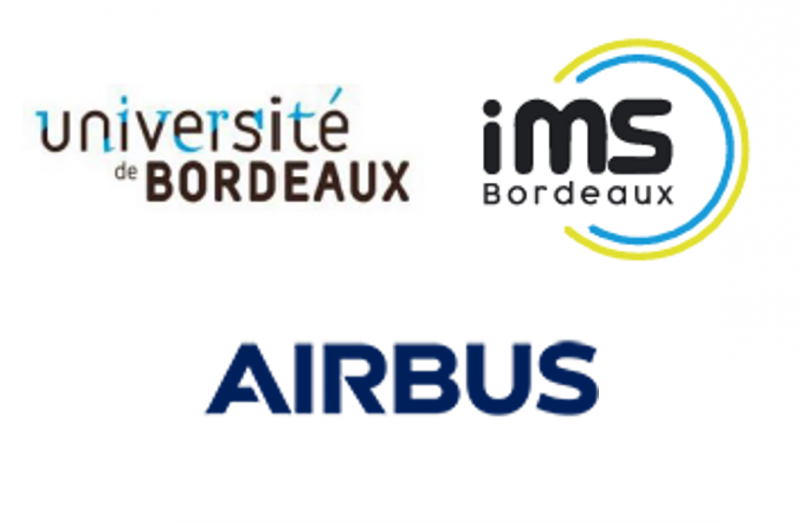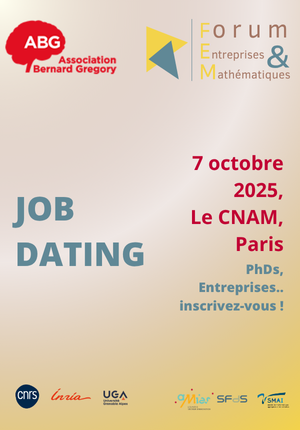PhD - CIFRE - Aircraft Braking Dynamic Model Derivation for Nonlinear Robust Control Design
| ABG-132372 | Thesis topic | |
| 2025-06-04 | Cifre |

- Engineering sciences
- Robotics
Topic description
Context:
The braking system on an aircraft is a critical safety element. It must be available and provide sufficient performance to avoid a possible runway excursion, whatever the runway contamination conditions (rain, snow, type of surface, etc.). To achieve this, an anti-skid system is installed on most commercial aircraft. These performance and availability requirements are defined by the EASA. Although this problem is under control, it suffers from the absence of a systematic procedure. As a result, the possibility of using mathematical modelling of the braking system to reduce costs in the validation process (reduction of the iterative process between ‘advanced’ simulations and in a ‘hardware in the loop’ configuration) is becoming an area of interest.
In this context, a CIFRE thesis entitled ‘Aircraft Braking Dynamic Model Derivation for Nonlinear Robust Control Design’ is available at Airbus Commercial's Saint Martin du Touch site in Toulouse, in collaboration with researchers from the IMS laboratory at the University of Bordeaux. You will be joining a team dedicated to R&T (Research and Technology) to develop future landing gear systems, in close collaboration with an Airbus team also based at the Filton (Bristol) site in the UK.
Objective:
The aim of this PhD project is to be able to provide a modelling of the various components of a braking system in order to enable the optimised design of an aircraft anti-skid system. The PhD student will be able to draw on previous work based on Lagrange equations and tools such as SimMechanics (Simscape Multibody) to create a high-fidelity model of the braking system. The work will lead to a realistic functional engineering simulator (FES), capable to be more reliable for a hardware-in-the-loop (HIL) assessment.
This project offers a stimulating working environment at the intersection of modelling, simulation and the practical challenges of aeronautical engineering. The ideal candidate will have a solid background in control theory, applied mathematics and an interest in mechanics and numerical simulation.
Tasks and methods
Under the guidance of your supervisors, you will develop your skills according to the following schedule:
Phase 1 : Mathematical modelling
Description and definition of the braking system (from M0 to M6)
Modelling and development of a high-fidelity simulator (M3 to M21)
Phase 2: Design of a robust control law
Description of the robust control method (M12 to M18)
Synthesis of a robust control law for the Anti-Skid (M15 to M24)
Phase 3 : Validation of Solutions
Stability and robust performance analysis (M24 to M30)
Performance validation in a representative environment (M27 to M36)
A publication will be expected for each of these phases.
Skills & Prerequisites:
You hold an Engineering/M2 Research Master's degree in control engineering or applied mathematics.
You possess the following knowledge and skills: i) Strong skills in linear algebra, differential and integral calculus, differential equations, and numerical methods. Knowledge of Lagrange equations is an asset. ii) Experience in modeling and simulation: Familiarity with modeling software (ideally SimMechanics/Simscape Multibody or similar tools such as MATLAB/Simulink). iii) Strong background control engineering: Understanding of the basic principles of control, dynamic systems, and knowledge of robust control methods (PID, LTI, LPV, sliding mode, supervised control). iv) Basic knowledge in mechanics: Understanding of the fundamental principles of solid mechanics, dynamics, and potentially fluid mechanics (for runway contamination). v) Programming skills: Proficiency in a scientific programming language (MATLAB) for the implementation of models and control algorithms.
Language skills: English: fluent, French: advanced level
Funding category
Funding further details
Presentation of host institution and host laboratory
AIRBUS: Airbus pioneers sustainable aerospace for a safe and united world. The Company constantly innovates to provide efficient and technologically-advanced solutions in aerospace, defence, and connected services. In commercial aircraft, Airbus offers modern and fuel-efficient airliners and associated services. Airbus is also a European leader in defence and security and one of the world's leading space businesses. In helicopters, Airbus provides the most efficient civil and military rotorcraft solutions and services worldwide.
IMS Laboratory: IMS focuses on ten research themes including bioelectronics, cognitics, productics, signal and image, automatic, conception, reliability, nanoelectronics, waves, and organic. The laboratory emphasizes research where all the themes are interconnected.
The laboratory is at the forefront of technology, and its strong industrial partnerships enable IMS Bordeaux to be a major player in research in France.
PhD title
Country where you obtained your PhD
Institution awarding doctoral degree
Graduate school
Candidate's profile
Skills & Prerequisites:
You hold an Engineering/M2 Research Master's degree in control engineering or applied mathematics.
You possess the following knowledge and skills: i) Strong skills in linear algebra, differential and integral calculus, differential equations, and numerical methods. Knowledge of Lagrange equations is an asset. ii) Experience in modeling and simulation: Familiarity with modeling software (ideally SimMechanics/Simscape Multibody or similar tools such as MATLAB/Simulink). iii) Strong background control engineering: Understanding of the basic principles of control, dynamic systems, and knowledge of robust control methods (PID, LTI, LPV, sliding mode, supervised control). iv) Basic knowledge in mechanics: Understanding of the fundamental principles of solid mechanics, dynamics, and potentially fluid mechanics (for runway contamination). v) Programming skills: Proficiency in a scientific programming language (MATLAB) for the implementation of models and control algorithms.
Language skills: English: fluent, French: advanced level
Vous avez déjà un compte ?
Nouvel utilisateur ?
Get ABG’s monthly newsletters including news, job offers, grants & fellowships and a selection of relevant events…
Discover our members
 ONERA - The French Aerospace Lab
ONERA - The French Aerospace Lab  Ifremer
Ifremer  Aérocentre, Pôle d'excellence régional
Aérocentre, Pôle d'excellence régional  Groupe AFNOR - Association française de normalisation
Groupe AFNOR - Association française de normalisation  ADEME
ADEME  Laboratoire National de Métrologie et d'Essais - LNE
Laboratoire National de Métrologie et d'Essais - LNE  MabDesign
MabDesign  Tecknowmetrix
Tecknowmetrix  ANRT
ANRT  TotalEnergies
TotalEnergies  CASDEN
CASDEN  CESI
CESI  Généthon
Généthon  Institut Sup'biotech de Paris
Institut Sup'biotech de Paris  MabDesign
MabDesign  ASNR - Autorité de sûreté nucléaire et de radioprotection - Siège
ASNR - Autorité de sûreté nucléaire et de radioprotection - Siège  SUEZ
SUEZ  Nokia Bell Labs France
Nokia Bell Labs France  PhDOOC
PhDOOC


